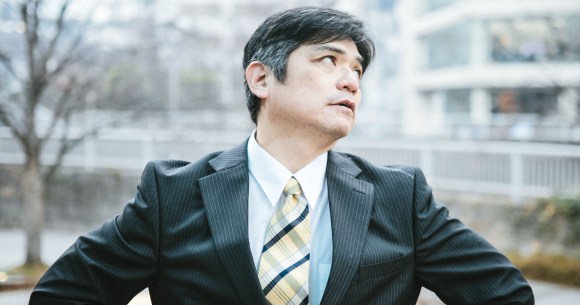
Kids these days, amiright?
In Japan, even large companies often employ graduates straight out of college, and in fact, many college students secure a job long before they’re scheduled to graduate. This usually means means that, after graduating in March, these fresh-out-of-school adults have a job lined up and waiting for them to start in April.
New employees who are also new graduates are known as “shinjin”, which means “new people” but carries a connotation simmilar to “newbie.” It’s somewhat expected that most shinjin won’t have much knowledge of the world, and most bosses are willing to make some allowances. But it’s also expected that newbies have some semblance of professionalism and common sense, and so, some of the behavior that older Japanese employees have observed in their younger counterparts, like stealing property or scolding their bosses, is hard for veteran workers to accept.
Twitter user @rsgomashio, known as RinRin on her account, is the latest to share her experience with a new hire. This office lady in her 40s observed the following behavior in a new employee:
“The newbie today:
They didn’t come into to work until 10:30 today and didn’t contact anyone beforehand. That means they were an hour and a half late. When asked why, they replied, “Mama wasn’t feeling well this morning so she didn’t wake me up” and immediately everyone in the office started buzzing about the excuse. Not only that, but as soon as they arrived they went straight to the break room and started cutting up some fruit. When their supervisor tried to talk to them about it they replied, “Isn’t it power harassment to tell a subordinate not to eat breakfast?” That caused another uproar in the office.
*True story.”
今朝の新人ちゃん。
— りんりん (@rinrinkonkatsu) November 15, 2017
連絡もなく10時半に出勤。1時間半の遅刻。理由が「ママの具合が悪くて起こして貰えなかった」一瞬社内がざわつく。10時半に来て給湯室で果物切り出し先輩に注意されるも「朝ごはん食べてはダメとかパワハラですよね?」発言。またしても社内がざわつく。※実話です。
So not only was this individual late and did not tell anyone, they also had the nerve to tell their supervisor that they didn’t have the right to scold them. Furthermore, they didn’t seem to see anything funny about telling the office that they have to be woken up by their mother every morning, and that’s to say nothing of the fact that their mother’s health and well-being is obviously second to their own mundane needs.
RinRin’s followers seemed to agree with her feelings of incomprehension. Most offered similar examples, while some tried to offer viable reasons for such conduct:
“If they still refer to their mother as “Mama” at work, they’re not much of an adult.”
“This must be the result of the low-pressure education system. We’ve got someone just like this in our office too, and they’ve been a headache for months.”
“We have someone that often falls asleep in meetings. Once when she was scolded about it, she replied, ‘I have to get eight hours of sleep to be functional, and I only got six hours last night, so…’ She’s not my subordinate so it didn’t bother me but it was still unfortunate…”
“That’s terrifying! I think it’s less about them being a newbie and more due to them being a terrible person. I wonder if they even have any friends?”
But wait, there’s more!
なるべく早く来た方がいいと思って連絡する時間もご飯食べる時間も惜しんで出社したというのが新人ちゃんの主張。貴方達は食事して来ていて私はお腹すいて頭まわらないまま仕事させるんですか?とか騒いでる。
— りんりん (@rinrinkonkatsu) November 15, 2017
あと1時間くらいでランチの時間だから我慢しようよね💦って言い聞かされてる。
In a follow-up tweet, RinRin explains that apparently the newbie thought that they should get to work as soon as possible, and not waste time with calling or eating. Solid logic, but questionable execution. And her reasoning for eating breakfast right away? “Why should I work while I’m dizzy with an empty stomach, when you all have already eaten breakfast before coming in?”
And lunch was only an hour away.
Oh dear. Hopefully all new hires are not this bad. Maybe they just won’t put up with Japanese companies’ rigid old-man rules anymore, and companies are going to have to change their ways in the next decade. Or perhaps shinjin really are just lacking a bit of common sense. Either way, the generation gap is giving people of all ages an extra challenge in the workplace.
Source: Hachima Kiko
Top image: Pakutaso
Insert image: Pakutaso


 Japanese workers reveal the 8 most astonishing things new employees do in the workplace
Japanese workers reveal the 8 most astonishing things new employees do in the workplace Survey by Japanese ministry reveals high rates of “maternity harassment” in workplace
Survey by Japanese ministry reveals high rates of “maternity harassment” in workplace Tokyo company plays Rocky theme for workers every day to cut overtime, boost productivity
Tokyo company plays Rocky theme for workers every day to cut overtime, boost productivity Will Smith makes sushi with Japanese YouTuber Bilingirl Chika
Will Smith makes sushi with Japanese YouTuber Bilingirl Chika Japanese youths anger police by sitting at kotatsu table at busy Kyoto intersection【Video】
Japanese youths anger police by sitting at kotatsu table at busy Kyoto intersection【Video】 Japanese ramen restaurants under pressure from new yen banknotes
Japanese ramen restaurants under pressure from new yen banknotes McDonald’s Japan releases a pancake pie for new retro kissaten coffeeshop series
McDonald’s Japan releases a pancake pie for new retro kissaten coffeeshop series Beautiful Red and Blue Star luxury trains set to be Japan’s new Hokkaido travel stars
Beautiful Red and Blue Star luxury trains set to be Japan’s new Hokkaido travel stars Mt. Koya planning to instate visitor’s tax to cope with huge tourist numbers
Mt. Koya planning to instate visitor’s tax to cope with huge tourist numbers We tried Korea’s way-too-big King Tonkatsu Burger at Lotteria 【Taste Test】
We tried Korea’s way-too-big King Tonkatsu Burger at Lotteria 【Taste Test】 New private rooms on Tokaido Shinkansen change the way we travel from Tokyo to Kyoto
New private rooms on Tokaido Shinkansen change the way we travel from Tokyo to Kyoto A trip to hell on Japan’s ‘vomit ship’: Is it as bad as everyone says it is?
A trip to hell on Japan’s ‘vomit ship’: Is it as bad as everyone says it is? French Fries Bread in Tokyo’s Shibuya becomes a hit on social media
French Fries Bread in Tokyo’s Shibuya becomes a hit on social media Studio Ghibli releases new action figures featuring Nausicaä of the Valley of the Wind characters
Studio Ghibli releases new action figures featuring Nausicaä of the Valley of the Wind characters Secret Kitchen bento serves Japanese flowers, birds, wind and moon in a box, but is it worth it?
Secret Kitchen bento serves Japanese flowers, birds, wind and moon in a box, but is it worth it? McDonald’s new Happy Meals offer up cute and practical Sanrio lifestyle goods
McDonald’s new Happy Meals offer up cute and practical Sanrio lifestyle goods All-you-can-drink Starbucks and amazing views part of Tokyo’s new 170 meter-high sky lounge
All-you-can-drink Starbucks and amazing views part of Tokyo’s new 170 meter-high sky lounge More foreign tourists than ever before in history visited Japan last month
More foreign tourists than ever before in history visited Japan last month Starbucks reopens at Shibuya Scramble Crossing with new look and design concept
Starbucks reopens at Shibuya Scramble Crossing with new look and design concept Studio Ghibli glasses cases let anime characters keep an eye on your spectacles
Studio Ghibli glasses cases let anime characters keep an eye on your spectacles Is the new Shinkansen Train Desk ticket worth it?
Is the new Shinkansen Train Desk ticket worth it? Beautiful Ghibli sealing wax kits let you create accessories and elegant letter decorations【Pics】
Beautiful Ghibli sealing wax kits let you create accessories and elegant letter decorations【Pics】 Studio Ghibli releases Kiki’s Delivery Service chocolate cake pouches in Japan
Studio Ghibli releases Kiki’s Delivery Service chocolate cake pouches in Japan New definition of “Japanese whiskey” goes into effect to prevent fakes from fooling overseas buyers
New definition of “Japanese whiskey” goes into effect to prevent fakes from fooling overseas buyers Our Japanese reporter visits Costco in the U.S., finds super American and very Japanese things
Our Japanese reporter visits Costco in the U.S., finds super American and very Japanese things Studio Ghibli unveils Mother’s Day gift set that captures the love in My Neighbour Totoro
Studio Ghibli unveils Mother’s Day gift set that captures the love in My Neighbour Totoro Domino’s Japan now sells…pizza ears?
Domino’s Japan now sells…pizza ears? New Japanese KitKat flavour stars Sanrio characters, including Hello Kitty
New Japanese KitKat flavour stars Sanrio characters, including Hello Kitty New Pokémon cakes let you eat your way through Pikachu and all the Eevee evolutions
New Pokémon cakes let you eat your way through Pikachu and all the Eevee evolutions Sales of Japan’s most convenient train ticket/shopping payment cards suspended indefinitely
Sales of Japan’s most convenient train ticket/shopping payment cards suspended indefinitely Sold-out Studio Ghibli desktop humidifiers are back so Totoro can help you through the dry season
Sold-out Studio Ghibli desktop humidifiers are back so Totoro can help you through the dry season Japanese government to make first change to romanization spelling rules since the 1950s
Japanese government to make first change to romanization spelling rules since the 1950s Ghibli founders Toshio Suzuki and Hayao Miyazaki contribute to Japanese whisky Totoro label design
Ghibli founders Toshio Suzuki and Hayao Miyazaki contribute to Japanese whisky Totoro label design Doraemon found buried at sea as scene from 1993 anime becomes real life【Photos】
Doraemon found buried at sea as scene from 1993 anime becomes real life【Photos】 Tokyo’s most famous Starbucks is closed
Tokyo’s most famous Starbucks is closed One Piece characters’ nationalities revealed, but fans have mixed opinions
One Piece characters’ nationalities revealed, but fans have mixed opinions We asked a Uniqlo employee what four things we should buy and their suggestions didn’t disappoint
We asked a Uniqlo employee what four things we should buy and their suggestions didn’t disappoint Princesses, fruits, and blacksmiths: Study reveals the 30 most unusual family names in Japan
Princesses, fruits, and blacksmiths: Study reveals the 30 most unusual family names in Japan Woman sues Tokyo company after having to work 48 days in a row with limited bathroom breaks
Woman sues Tokyo company after having to work 48 days in a row with limited bathroom breaks Can even our brown thumbs keep this “moss bonsai” kit alive?【Photos】
Can even our brown thumbs keep this “moss bonsai” kit alive?【Photos】 Osaka mom gets attention online for unusual way of scolding her child at the train station
Osaka mom gets attention online for unusual way of scolding her child at the train station Ichikawa-Mama station gets linguistic makeover just in time for Mother’s Day
Ichikawa-Mama station gets linguistic makeover just in time for Mother’s Day Overworked Japanese employees mourn unused paid holidays at new Buddhist memorial service
Overworked Japanese employees mourn unused paid holidays at new Buddhist memorial service Japanese netizens support foreign comic after one Japanese man’s discriminatory remark
Japanese netizens support foreign comic after one Japanese man’s discriminatory remark One in four surveyed Japanese workers admits to wanting to kill boss, Osaka quake helps show why
One in four surveyed Japanese workers admits to wanting to kill boss, Osaka quake helps show why Shiba Inu dressed up as Japanese yokai achieve new level of cute and spooky
Shiba Inu dressed up as Japanese yokai achieve new level of cute and spooky Could Pen-Pineapple-Apple-Pen be the start of a new form of workplace harassment in Japan?
Could Pen-Pineapple-Apple-Pen be the start of a new form of workplace harassment in Japan? Japanese university globalizes with fall start date, governor wants English as official language
Japanese university globalizes with fall start date, governor wants English as official language Our reporter breaks her Takarazuka virginity with an all-female performance of City Hunter
Our reporter breaks her Takarazuka virginity with an all-female performance of City Hunter Steamy Heinz Japan commercials urge married women to have affairs with handsome pig【Videos】
Steamy Heinz Japan commercials urge married women to have affairs with handsome pig【Videos】 Kyary Pamyu Pamyu’s “little sister” Hamada Bamyu Bamyu is kinda cute and kinda gorilla【Video】
Kyary Pamyu Pamyu’s “little sister” Hamada Bamyu Bamyu is kinda cute and kinda gorilla【Video】 New line of paired boy/girl Pikachu plushies kicks off with couple in Japanese school uniforms
New line of paired boy/girl Pikachu plushies kicks off with couple in Japanese school uniforms The five least stressful jobs, as ranked by Japanese working people
The five least stressful jobs, as ranked by Japanese working people
Leave a Reply